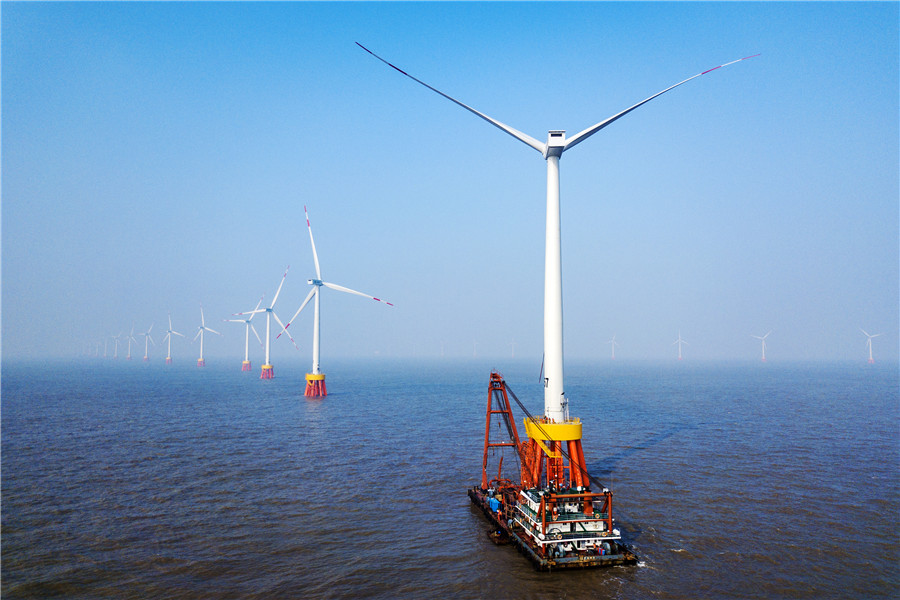Climate change, China and the world


By Imtiaz Ahmed
Human’s uncritical engagement with fossil fuel civilisation since the dawn of Industrial Revolution in the mid-18th century led to the excessive accumulation of greenhouses gases in the atmosphere and in the process, particularly in the last two centuries, made the earth warmer in a much shorter span of time. Global warming otherwise fuelled climate change to the detriment of life and living of all beings, including humans. But then, in the wake of human-driven climate change the post-Enlightenment positivist discourses and disciplinary boundaries got reformulated. Earlier ‘natural history’ remained separated from ‘human history,’ the latter did not bother to reflect on or encroach upon the disciplinary quest of the former. Separated time-scale in the evolution of the two – nature and human - dictated that the history of nature and historiography were on different planes, and save minor cautionary remarks by poets and philosophers, the disciplinary boundaries were taken for granted. This became untenable when more and more scientists in late 20th century agreed that something was wrong with the climate. Frequent cyclones around the world, drought in Australia, the melting of glaciers of the Himalayan and other mountain ranges, including that of polar ice caps, the continuous rise in the global sea level, which incidentally has been rising at a rate of at least 0.04 to 0.1 inches per year since 1900, all made life and living on earth hazardous and risky. Climate change could no longer be ignored.
Indeed, in the wake of climate change, the separation between natural science and human history became weak and somewhat unreal. This is not to discount the age-old relationship between the two but then such relationship was minimal and millennial, one hardly affecting the other. Change in geographical environment, for instance, required millions of years while a change in the system of human society could come about in a few hundred or thousand years. But that is no longer valid. The speed with which climate change started to reshape the earth, thanks to human-led activities, it transformed humans into a geological force, imbibed with the power of “changing the most basic physical processes of the earth.” This led some to contend that the earlier geological epoch of Holocene (Whole or Entirely Recent and dated 9,700 BCE) got replaced by the Anthropocene, with humans becoming a force of nature, tragically contributing to the extinction of species, indeed, as one critic remarked, “similar in intensity to the event around 65 million years ago which wiped out the dinosaurs.” A rollback or halting the process of what is surely nothing less than ‘self-destruction’ is not that easy.
Like many countries in the world, China is trying to contain the Anthropocentric destruction of the world by cutting down on carbon emission, which is critical in arresting climate change. However, one must note that although China and India are often flagged as the biggest polluters in the world, the per capita carbon emission of both these countries remains relatively low compared to the developed countries. China's and India's per capita carbon emissions stand at 7.3 and 1.9 tons, respectively, but some developed countries, particularly the USA, Canada, and Australia, measure per capita carbon emissions over 15.5 tons. This only shows that the developed countries must work collectively with the developing countries, including China, to contain the destructive impact of climate change. This is not to minimise the fact that rapid development in China hurt its environment, with many species of plants and animals facing the danger of extinction. The government quickly realised the environmental ominous impact and geared up its decarbonisation efforts. As a result, China is now the world's leading country in electricity production from renewable energy sources, with a commitment to achieve carbon neutrality before 2060 and peak emissions before 2030.
Only humans can reverse the Anthropocentric destruction of the earth. Humans, after all, are not only Homo Sapiens (thinking beings) but also Homo Faber (creative beings). The hope lies in the fact that the people of China, including the rest of the people of the world, would be able to see the negative impact of development on the environment and would be able to contain and reverse climate change for the good of life and living with creativity and hard work. Let us keep our dreams alive!
- Imtiaz Ahmed is a Professor of International Relations at University of Dhaka



